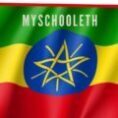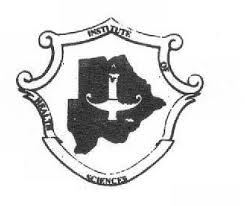Madawalabu University: Full List, Courses, Admissions, Fees, Contacts & More…

Myschooleth has outlined below the list of Madawalabu University with exclusive links to their courses offered, Fees Structure, Academic Calendar, Admission Forms, Cut Off Points, Entry Requirements, Student Portal, Contacts details and so much more.
Contents
Madawalabu University Courses/Program
Institute of Technology
Vision
MWU-IOT will be a Technological Institute distinguished by outstanding learner experience, international focus, distinctive regional contribution and high quality impact of its staff on teaching, training, applied research and innovation.
Mission
To provide student-centered, career-focused education, training and applied research programs for our cohort of learners within a professional and supportive environment. We are fully committed to intensive engagement with regional business, enterprise and social communities while maintaining our university orientation.
To achieve our Mission, we will:
1. Continue to attract, support and assist our learners throughout their entire educational pathway.
2. Provide our students with an outstanding learner experience so that MWU-IOT graduates will be professionally ready with the requisite skills to enter the marketplace.
3. Maintain the breadth of educational program provision while placing special emphasis on work-based learning and on augment competency training.
4. Focus on attaining the nominated benchmarks required for quality enhancement and the designation of MWU-IOT as a Technological Institute.
5. Further develop and embed digital technology in support of our core mission.
6. Continue to expand and improve the capacity of our applied research, innovation and enterprise development programs.
7. Continue to engage and empower staff and enhance their knowledge-base and skills profile as part of their continuous professional development.
8. Further strengthen our typical regional engagement with business, enterprise and communities.
9. Achieve phase collaborative integration through selected strategic alliances and clusters.
10. Focus and strengthen our global orientation in education, research and innovation.
Values
Quality and speedy service delivery
Participatory approach and the rule of law
Justice and fairness
A culture of fighting corruption
Democracy and multiculturalism
Competitiveness in scholarship and cooperation with other institutions
Institutional autonomy with accountability
Economical use of resources and assets
Recognition of merit
College of Engineering
1. Civil Engineering Department
2. Mechanical Engineering Department
3. Electrical Engineering Department
4. Construction Technology and Management
5. Surveying Engineering Department
6. Water Resource and Irrigation Engineering Department
College of Computing
1. Information Science
2. Information Systems
3. Computer Science
The Scientific Director is Accountable to President and performs the following activities
1. Formulate standards, and working procedures relevant to the colleges under it in line with the University-wide policies, rules and regulations and ensure that their achievement;
2. Endorse the creation or revision of academic programs originating from or endorsed by departments and reported to the institute and propose for approval by the Senate;
3. Organize and approve research proposals and funding projects which are planned and coordinated by the colleges;
4. Process scholarships for staff and students within the institute and research hosted by the IOT;
5. Initiate and facilitate external relations with a view to forging partnerships with academic and research institutions, donors, and the industry as well as promoting community service in line with applicable rules and regulations of the University;
6. Oversee the processes of staff recruitment, transfer, promotion and professional development based on the policies and regulations;
7. Monitor the activities of Discipline Committee and other committees.
8. Prepare consolidated physical plan and budget plan of the institution and ensure its implementation; also prepare performance report on regular basis and submit to the concerned offices;
9. Oversee the proper distribution and utilization of teaching-learning resources and facilities;
10. Facilitate, monitor and evaluate the performance of administrative support team assigned under it;
11. Plan, organize and coordinate activities of finance and procurement depending on the approved budget of the institution;
12. Facilitate revenue collection from consultancy work, project contracts, donations, tuition fees etc;
13. Compile, produce and submit the activities, reports and essential statistics of the institution to the president as well as to the concerned organs of the university;
14. Oversee the processes of the contract agreements for academic and related activities (such as CEP, over time, over load, part time etc) and process related to payments in collaboration with the concerned offices;
15. Works closely with Research and Community Service Vice President regarding research, community service, university-industry linkage and technology transfer.
16. Perform other duties assigned by the President.
Message from the IOT Acting Senior Director
Welcome to MaddaWalabu University Institute of Technology (MWU-IOT), a venue of a very promising institution in Bale Zone which aspire to serve as a model for other educational institution within the country. MWU-IOT was started in the year 2009 E.C. The Institute has two colleges: Engineering and Computing. The College of Engineering has six (6) departments: Civil Engineering, Construction Technology and Management, Water Resources and Irrigation Engineering, Mechanical Engineering, Electrical Engineering and Surveying Engineering. While the College of Computing has three (3) departments: Information Science, Information Systems and Computer Science.
MWU-IOT aims to boasts culture of academic excellence, scientific breakthroughs, and high-tech innovation. One of our missions is to produce internationally competent Engineering and Technology graduates. The IOT colleges guarantee to conduct technology-based applied research and transferring technologies for industries and communities through strong partnership and entrepreneurship culture. In the coming years, the institute desires to be the center of excellence in teaching practice-oriented applied technology education in which its graduates develop the required skills by way of industrial apprenticeships locally and internationally.
I would ask you to take advantage of this great opportunity and join us in our endeavor, to actively contribute to the overall improvement of this increasingly globalized society.
I anticipate you to be a part of MWU-IOT.We are fighting for excellence!
With best wishes,
NANETTE ANDO UBALDO, MSc
Acting Senior Director of Institute of Technology
Departements
i. Under Graduate Program
Management
Accounting and Finance
Economics
Marketing Management
Tourism Management
ii. Post Graduate Program
MBA/Masters of Busines Administration
SCHOOL OF LAW
The mission of school of law is to produce competent entrepreneurial as well as employable graduates, provide need based community services and demand driven/problem solving research outputs through relevant and quality education, research, training and consultancy service to foster socio-economic development in the country.
Madda Walabu University School of Law aspires to be one of the top three societal problem solving universities in Ethiopia by 2025.
List of Department
· Department of Law
· Free Legal Service Center
Ø Bale Zone High Court Free Legal Service Center
Ø SinanaWereda Court Free Legal Service Center
Ø GobaWereda Court Free Legal Service Center
Ø DinshoWereda Court Free Legal Service Center
· Moot Court
· Externship and Legal Clinics
· Law School Registrar
· Law Library
Message from the Dean
Welcome to Madda Walabu University School of Law. The School was launched in 2015 and after its establishment, had begun its academic activities with 37 degree regular and 47 extension program students. Today, more than 100 students are attending the regular LL. B program whereas 32 students are enrolled in the extension degree program. Upon its establishment, the School had only three full-time instructors but currently 21 members of academic staff have joined and taught law courses in the School.
The School of Law has an honored experience of providing access to justice for all vulnerable groups of the communities through its legal aid centers in collaboration with Oromia Supreme Court and Bale Zone High Court. On the other hand, our School is a founding member of Ethiopian Law Schools Association and has been an active participant in the Ethiopian Law schools’ consortium since 2015. I invite you to explore our website and learn more about the School of Law.
Solomon Girma, Dean


